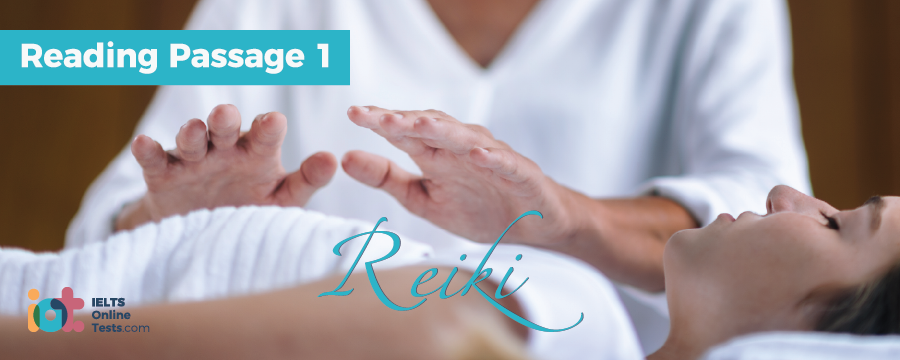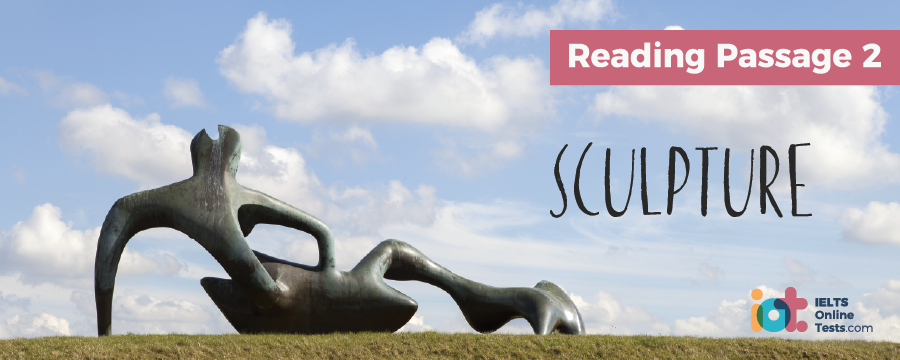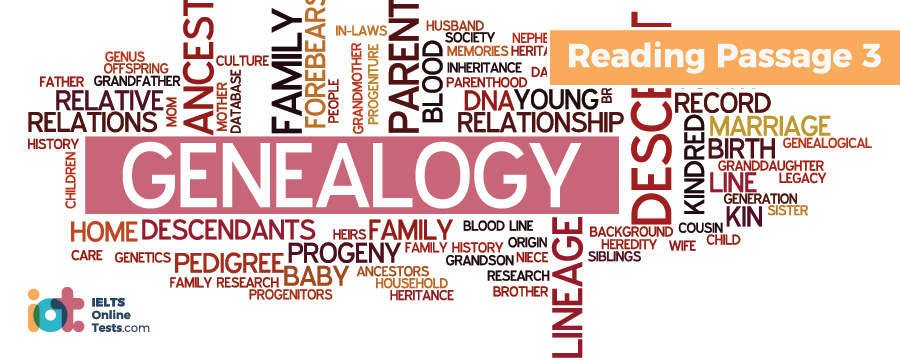
IELTS Mock Test 2021 July
- Published on: 21 Jul 2021
- Tests taken: 476,231
Answer Keys:
Part 1: Question 3 - 13
- 1-3 B,D,G
- 4 G
- 5 C
- 6 B
- 7 E
- 8 C
- 9 D
- 10 C
- 11 D
- 12 A
- 13 B
- 1-3 B,D,G
- 4 G
- 5 C
- 6 B
- 7 E
- 8 C
- 9 D
- 10 C
- 11 D
- 12 A
- 13 B
Part 2: Question 14 - 27
- 14 Favoured
- 15 Religious
- 16 Durable
- 17 Ephemeral
- 18 Southern
- 19 Clay
- 20 Religious rituals
- 21 Wood
- 22 Materials
- 23 Pharaonic Africa
- 24 Metal
- 25 Burial
- 26 Abstract
- 27 the human form
- 14 Favoured
- 15 Religious
- 16 Durable
- 17 Ephemeral
- 18 Southern
- 19 Clay
- 20 Religious rituals
- 21 Wood
- 22 Materials
- 23 Pharaonic Africa
- 24 Metal
- 25 Burial
- 26 Abstract
- 27 the human form
Part 3: Question 28 - 40
- 28 iii
- 29 viii
- 30 ix
- 31 vi
- 32 ii
- 33 FALSE
- 34 FALSE
- 35 NOT GIVEN
- 36 TRUE
- 37 D
- 38 B
- 39 C
- 40 A
- 28 iii
- 29 viii
- 30 ix
- 31 vi
- 32 ii
- 33 FALSE
- 34 FALSE
- 35 NOT GIVEN
- 36 TRUE
- 37 D
- 38 B
- 39 C
- 40 A
Leaderboard:
| # | User | Score | Time | |
|---|---|---|---|---|
| Chau Nguyen |  | 9.0 | 15:17 | |
| Thu Phung |  | 9.0 | 15:17 | |
| Doğu Tozlu |  | 9.0 | 15:25 | |
| 4 | BYOMOKESH SINHA |  | 9.0 | 15:41 |
| 5 | thu anh ngo |  | 9.0 | 15:43 |
| 6 | Nazym Talgat |  | 9.0 | 15:45 |
| 7 | Shah Farhana |  | 9.0 | 16:06 |
| 8 | Dung Nguyen |  | 9.0 | 16:54 |
| 9 | Rayalapalli Greeshma |  | 9.0 | 17:12 |
| 10 | Esther Ayodapo |  | 9.0 | 18:12 |
Review & Explanations:
Questions 1-3
Choose THREE letters A-H.
Write your answers in boxes 1- 3 on your answer sheet
N.B. Your answers may be given in any order
Which THREE of the following statements are true of Reiki?
- A
- B
- C
- D
- E
- F
- G
- H
- 1-3 Answer: B,D,G
Keywords in Questions
Similar words in Passage
Which THREE of the following statements are true of Reiki?
Correct answers:
B. Attunement is said to have a permanent effect on the recipient.
D. There are differences in opinion regarding its use with other therapies.
G. Some therapists believe a pessimistic approach affects results.
This ability once established is considered to be enduring
Since healing initiated by Reiki treatment is entirely natural, many practitioners are confident that it can be used alongside any other type of treatment without adverse effect; however, others recommend that since the patient may undergo significant internal improvement for certain ailments – diabetes, for example – careful monitoring is required since such improvements may establish a need for an alteration in medication requirements.
While some masters and teachers hold that subjects must be receptive to the concept in order for energy to flow
To have a permanent effect ~ to endure this ability. So, ovbiously, B is a correct answer.
Therapies ~ treament
Its use with other therapies ~ It can be used alongside any other type of treatment.
Stick to the clause “many practitioners are confident that”, which is always used to start an opinion, besides, “others recommend that” is also a sign for us about another opinion suggested in this paragraph. So D is a correct answer.
Some masters and teachers ~ some therapists
The last one is kind of a hard choice for many students as it has no synonyms or anything in common at all. So we have to analyze it a little bit more careful. The writer wrote that: “subjects must be receptive to the concept in order for energy to flow”. Receptive means whether you are willing to consider new ideas or listen to someone else’s opinions. That means you need to have a pessimistic attitude to listen and accept a new concept. In that case, the energy could be able to flow. So pessimistic attitude affects the result of the therapy. G is totally a correct answer.
*endure: to remain alive or continue to exist for a long time
*receptive: willing to consider new ideas or listen to someone else’s opinions.
Questions 4-9
Reading Passage 1 has seven paragraphs A-G.
Which paragraph contains the following information? You can use each paragraph more than once.
4 A scientific explanation of why Reiki may have positive effects.
5 An overview of the practicalities of how Reiki is performed.
6 The pre-requisite required to experience Reiki benefits.
7 When patients faith and expectations cause concern.
8 The immediate effects that can be experienced by recipients.
9 The safety of conducting therapy for practitioners.
- 4 Answer: G
Keywords in Questions
Similar words in Passage
Q4. A scientific explanation of why Reiki may have positive effects.
Theories have been put forward that the benefits of energy treatments such as Reiki may be scientifically attributed to the effect of electromagnetic fields.
Positive effects ~ benefits of energy treatments
The sentence presents that theories, which is scientific explanation, has been put forward that Reiki may have positive effects. And this sentence locates in paragraph G.
So the answer is paragraph G.
- 5 Answer: C
Keywords in Questions
Similar words in Passage
Q5: An overview of the practicalities of how Reiki is performed.
A ‘whole body’ Reiki treatment session typically lasts between to 90 minutes. The subject is required to lie down – often on a treatment table – clothed in comfortable and loose fitting attire. Treatment may involve the practitioner placing their hands on the recipient in a variety of positions; however, some therapists take a non-touching approach, holding their hands a few centimeters away from the body. Hands are usually held in one position for up to 5 minutes before moving on to the next part of the body; between 12 and 20 hand positions are generally used.
There is obviously an introduction of how to do a Reiki treatment by introducing how long does it last (90 minutes), which position the subject need to follow during the treatment session, how will practitioner apply this method on you and so on. All of these things contribute to an overview picture of how Reiki is performed.
*practicality: how suitable something is, or whether it will work
So the answer is paragraph C.
- 6 Answer: B
Keywords in Questions
Similar words in Passage
Q6. The pre-requisite required to experience Reiki benefits.
According to Reiki philosophy, only by undergoing an attunement process performed by a Reiki Master is an individual able to access
This is an easy question, except for difficult and unfamiliar word “pre-requisite”
The meaning of this is what is the only thing patients have to do in order to experience Reiki method. There is a sentence in paragraph B shows the same thing: “only by undergoing an attunement process” which guides the way so that “individual able to access”
*pre-requisite: something that is necessary before something else can happen or be done
So the answer is paragraph B.
- 7 Answer: E
Keywords in Questions
Similar words in Passage
Q7. When patients faith and expectations cause concern.
Some medical practitioners are concerned that its benefits may be overestimated by patients and that, as a result, they’ may ignore or bandon conventional treatments.
The question is in an active form while the sentence found in paragraph E is in a passive form.
Patients’ faith and the hope that they will recover from their illness after being treated by Reiki’s method makes them sometimes overestimated the effect of the therapy. That’s the problem which causes concern to some medical practitioners.
So the answer is paragraph E.
- 8 Answer: C
Keywords in Questions
Similar words in Passage
Q8: The immediate effects that can be experienced by recipients.
Those who have undergone a Reiki treatment session often state that they experienced a pleasant warmness in the area of focus and a feeling of contentment and relaxation throughout the session.
This is kind of an easy question as there is only one paragraph mention the effect of Reiki’s therapy.
“Experienced” has the same meaning as “undergone”
This sentence in paragraph C describes the feeling of those who are treated with Reiki’s method as “pleasant warmness”, “a feeling of contentment and relaxation”. So definitely, the answer is paragraph C.
- 9 Answer: D
Keywords in Questions
Similar words in Passage
Q9. The safety of conducting therapy for practitioners.
The healing energy is said to originate in the universe itself and is not the passing of personal energy from practitioner to patient, it is therefore thought to be inexhaustible and the personal well-being of the practitioner uncompromised.
This is a good question as the sentence in paragraph D is well paraphrased.
The sentence cited that there used to have a thought that the practitioners’ health will be shifted to the patient so that the practitioners are no longer healthy anymore. However, there is a sentence saying “The healing energy is said to originate in the universe itself and is not the passing of personal energy from practitioner to patient”. So that practitioners’ health is preserved
So the answer is paragraph E.
Questions 10-13
According to the information in Reading Passage 1, classify the following research findings into the benefits of Reiki as relating to
| A | The Institute of Neurological Studies |
| B | Research conducted in the USA |
| C | Cancer research |
| D | Stroke research |
Write the correct letter A, B, C or D in boxes 10–13 your answer sheet
10 The groups’ comfort and quality of life appeared to improve.
11 No apparent links were identified.
12 Results were compared to a control group who did not receive Reiki treatment
13 Recollection ability seemed to be enhanced.
- 10 Answer: C
Keywords in Questions
Similar words in Passage
Q10. The groups’ comfort and quality of life appeared to improve.
Other studies have also attempted to determine correlation between Reiki treatment and improvement in cancer and stroke patients. Whilst investigations into the first condition indicated a seemingly positive effect on degrees of fatigue, pain and stress experienced by sufferers , the second project failed to reveal a link between treatment and improvement in the subjects’ condition and rehabilitation
In this paragraph, both cancer and stroke are mentioned. However, their results are different. As the writer pointed out: “the first condition indicated a seemingly positive effect on degrees of fatigue”. The “first condition”, which means cancer research as it is mentioned first in the previous sentence, gain a positive effect, while the remain stroke didn’t “the second project failed to reveal a link between treatment and improvement in the subjects’ condition and rehabilitation”
The answer is clearly option C. Cancer research.
- 11 Answer: D
Keywords in Questions
Similar words in Passage
Q11. No apparent links were identified.
The second project failed to reveal a link between treatment and improvement in the subjects’ condition and rehabilitation.
The answer is quite clear as it is mentioned in this sentence: “The second project failed to reveal a link”. The second project here means Stroke cancer as it is mentioned secondly in the previous sentence. So obviously, there is no clear link at all to prove the relation between treatment and improvement in those stroke patients, who experienced Reiki’s method.
The answer is clearly option D:Stroke research
- 12 Answer: A
Keywords in Questions
Similar words in Passage
Q12. Results were compared to a control group who did not receive Reiki treatment .
During research conducted by the Institute of Neurological Studies at South Glasgow University Hospital it was observed that there was a significant decrease in heart rate and blood pressure amongst subjects receiving 30 minutes of Reiki treatment as opposed to a group receiving placebo treatment of 30 minutes rest.
“who did not receive Reiki treatment” has the same meaning as “placebo”
The word “placebo” is not familiar for a majority of students. However, this medical term is frequently used in pharmaceutical faculty
There is a comparison language here in this paragraph “opposed to” which expresses the concept that those who received Reiki treatment experienced better results regarding to heart rate and blood pressure than those who did not. And this research is carried out by the Institute of Neurological Studies.
*placebo: a harmless substance given to a sick person instead of medicine, without telling them it is not real. Placebos are often used in tests in which some people take real medicine and others take a placebo, so that doctors can compare the results to see if the real medicine works properly.
So the answer is clearly option A: The Institute of Neurological Studies
- 13 Answer: B
Keywords in Questions
Similar words in Passage
Q13. Recollection ability seemed to be enhanced.
A similarly small preliminary study into the potential effects of Reiki on patients suffering mild dementia, conducted in the USA, tentatively suggested that treatment had a positive effect on the subjects’ memory abilities ; however, research limitations included insufficient analysis of potential placebo effects.
Recollection ability seemed to be enhanced ~ had a positive effect on the subjects memory abilities.
This is kind of an easy question as students could easily find out the paraphrase sentence in paragraph F, which shows the results of the experiment conducted in the USA
*recollection: something from the past that you remember
So the answer is clearly option B. Research conducted in the USA.
READING PASSAGE 1
You should spend about 20 minutes on Questions 1-13, which are based on Reading Passage 1 below.

REIKI
A. The spiritual practice of Reiki was first introduced in early 20th century in Japan and continues to be used by its followers today with the intention of treating physical, emotional and mental imbalances and consequent ill-health. The principles of Reiki involve techniques employed by practitioners they say will channel healing energy through the subject’s body, and advocates hold that these techniques can also be used for self-healing. The name of the practice itself stems from two Japanese characters, pronounced ‘rei’ which translates to ‘unseen’ or ‘spiritual’ and ‘ki’ meaning ‘life force’ or ‘energy’.
B. According to Reiki philosophy, only by undergoing an attunement process performed by a Reiki Master is an individual able to access, then channel this positive energy within, this ability once established is considered to be enduring. Once attuned, it is said that an individual has the ability to allow energy to flow to weak or diseased areas of the body, so activating a natural healing process. Reiki energy is considered to be ‘intelligent energy’ in that it automatically flows to such areas; for this reason, practitioners believe that diagnosis of a specific problem is unnecessary beforehand and that the practice can be used as preventative medicine and encourage healing prior to the onset of tangible symptoms. Since healing initiated by Reiki treatment is entirely natural, many practitioners are confident that it can be used alongside any other type of treatment without adverse affect; however, others recommend that since the patient may undergo significant internal improvement for certain ailments – diabetes, for example – careful monitoring is required since such improvements may establish a need for an alteration in medication requirements.
C. A ‘whole body’ Reiki treatment session typically lasts between to 90 minutes. The subject is required to lie down – often on a treatment table – clothed in comfortable and loose fitting attire. Treatment may involve the practitioner placing their hands on the recipient in a variety of positions; however, some therapists take a non-touching approach, holding their hands a few centimeters away from the body. Hands are usually held in one position for up to 5 minutes before moving on to the next part of the body; between 12 and 20 hand positions are generally used. Those who have undergone a Reiki treatment session often state that they experienced a pleasant warmness in the area of focus and a feeling of contentment and relaxation throughout the session.
D. The healing energy is said to originate in the universe itself and is not the passing of personal energy from practitioner to patient; it is therefore thought to be inexhaustible and the personal well-being of the practitioner uncompromised. While some masters and teachers hold that subjects must be receptive to the concept in order for energy to flow, others believe that the attitude of the patient is of no consequence and that benefits will follow regardless; for this reason, those following the latter school of thought say that since Reiki requires no conscious belief it can also benefit the well-being of animals and plant life.
E. Controversy surrounds the practice of Reiki, some in opposition as they say that Reiki may offer only a perceived improvement in health and therefore only a ‘placebo’ effect. Whilst the practice of Reiki itself is not necessarily considered potentially harmful, some medical practitioners are concerned that its benefits may be over-estimated by patients and that, as a result, they’ may ignore or bandon conventional treatments. Others argue against the reliability of Reiki due to the lack of regulation of practitioners, holding that patients may be left vulnerable to illegitimate therapists who lack knowledge and skill. While Reiki is not connected to any particular religious doctrine, some religious leaders oppose the practice for spiritual reasons; however, others hold that the meditative principles involved in treatment have enhanced their own ability to explore and embrace their own particular religion.
F. Limited scientific studies in the authenticity of Reiki have been conducted. During research conducted by the Institute of Neurological Studies at South Glasgow University Hospital it was observed that there was a significant decrease in heart rate and blood pressure amongst subjects receiving 30 minutes of Reiki treatment as opposed to a group receiving placebo treatment of 30 minutes rest. Since the test group consisted of a small number of subjects just 45 – the research recommendations concluded a requirement for further studies. A similarly small preliminary study into the potential effects of Reiki on patients suffering mild dementia, conducted in the USA, tentatively suggested that treatment had a positive effect on the subjects’ memory abilities; however, research limitations included insufficient analysis of potential placebo affects.
G. Other studies have also attempted to determine correlation between Reiki treatment and improvement in cancer and stroke patients. Whilst investigations into the first condition indicated a seemingly positive effect on degrees of fatigue, pain and stress experienced by sufferers, the second project failed to reveal a link between treatment and improvement in the subjects’ condition and rehabilitation. Theories have been put forward that the benefits of energy treatments such as Reiki may be scientifically attributed to the effect of electromagnetic fields; however, the majority researchers agree that more extensive investigation is required.
-------------------------------------------
Great thanks to volunteer Trương Nhật Minh who has contributed these explanations and markings.
If you want to make a better world like this, please contact hi@ieltsonlinetests.com






